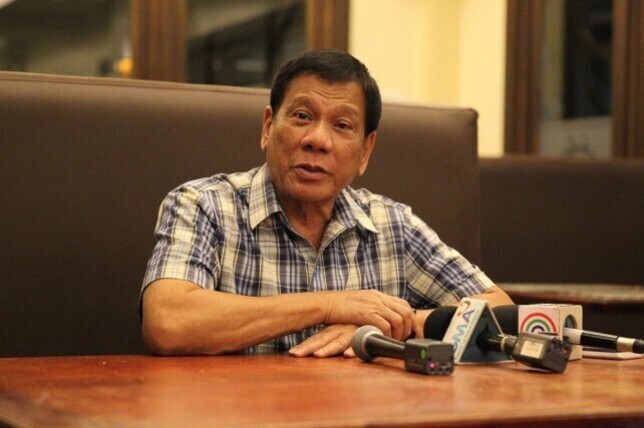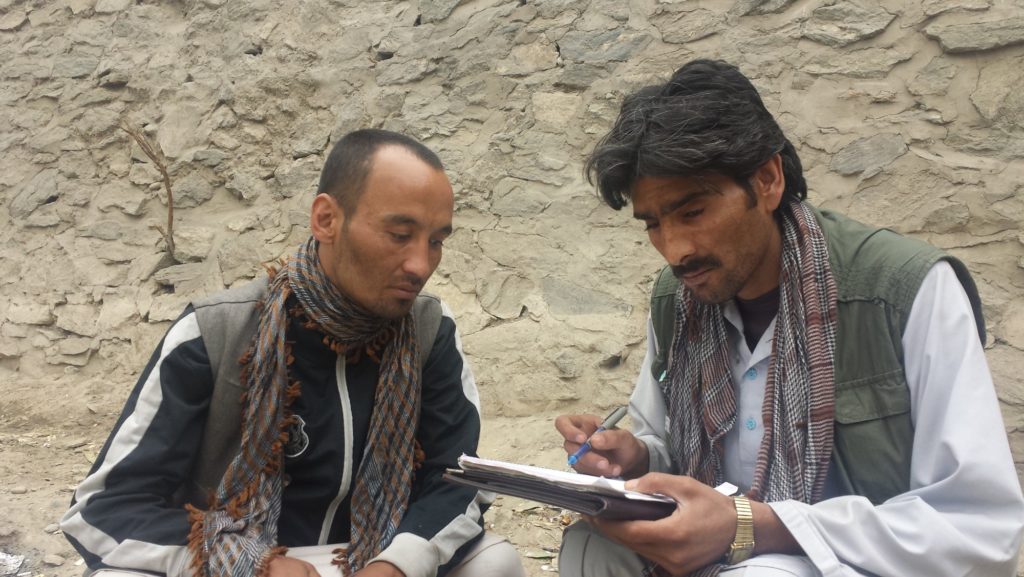After six years of state-sponsored killings under the Duterte administration, the Philippines elected a new President in 2022. Ferdinand “Bong Bong” Marcos Jr., the son and namesake of the former Philippine dictator (from 1965 to 1986), won by a landslide against the political opposition. His running mate, Sara Duterte, daughter of the immediately preceding President, followed as Vice President.
Unlike his predecessor, Marcos did not make drugs a central issue in his campaign, hinting instead at a new approach to substance control during his premiership. Shortly after his inauguration, Marcos committed to maintaining the drug war “within the framework of the law”. The new programme entitled “Buhay Ingatan Droga’y Ayawan” (BIDA) – translated as ‘take care of your life and say no to drugs’ – would instead refocus the brutal war on using health-oriented interventions instead.
The Philippine National Police Chief Gen. Rodolfo Azurin Jr. underscored this commitment, stating that killing is not the solution to the drug problem, and that the government’s drug campaign needed to be reviewed. In June 2023, the UN Joint Program (UNJP) on Human Rights jointly produced with Philippine national government agencies the Antipolo Declaration, which committed to deploying more public-health approaches to handling drug problems in the Philippines. Things looked positive for the fate of people using drugs in the Philippines, with the government unexpectedly supporting a more progressive approach to resolving drug-related issues.
However, despite these declarations, the reality remained just as violent: drug-related killings have not stopped under Marcos. Dahas, an organisation monitoring drug-related killings, reports that 736 people have been killed since Marcos’ inauguration up until July 2024. While less fatal than Duterte’s regime (for now), Marcos’ drug war does not seem likely to slow down: more killings were documented in Marcos’ second year in government than his first. While rhetorically the drug war may seem to have changed, on the ground it remains just as deadly.
To discern whether these new developments in drug policy could lead to genuine reform, I attended the Philippine Drug Policy and Law Summit online, held between 10 and 12 July.
Philippine Drug Policy Summit as a platform for civil society
The three-day Philippine Drug Policy and Law Summit was organised by the UNJP and civil society organisations (CSOs) to bring together various stakeholders from the government and civil society to discuss potential policy amendments to the Republic Act (RA)9165, or the “Comprehensive Dangerous Drugs Act of 2002” – the main legislative document governing substance use in the Philippines.
Senator Risa Hontiveros, the leader of the opposition and proponent of a bill that advocates for public health interventions for drug use, including harm reduction, in the Senate, underscored the need for these timely but difficult discussions as a critical step in drug policy reform.
“We all know that change starts with people and institutions engaging in conversations, opening dialogues and taking chances in hopes of uniting for better, more humane, and more just policies and laws,” she said in her solidarity message during the summit.
The organising team also included organisations run by drug treatment users, a welcome development. Representatives from IDUcare, a Cebu-based organisation led by people who inject drugs, served as facilitators in group discussions and subject matter experts throughout the Summit.
Aside from the policy recommendations presented in plenary, several proposals were also discussed during the breakout sessions. One session, run by treatment and rehabilitation centres, raised the need for safe spaces for people who use drugs and greater flexibility on the implementation of rehabilitation. Another session, focused on schools and learning institutions, discussed how to create evidence-informed educational programmes, and the abolishment of random and/or mandatory drug testing in schools. A workplace-focused group discussed the need to shift from “drug-free” discourses towards promoting more pragmatic and healthier work environments.
These discussions highlight the richness of the inputs coming from various stakeholders. Arline Santos, Executive Director of the Institute of Politics and Governance, recognised the active role of CSOs throughout the process of the preparation for the summit.
“CSOs and other stakeholders are claiming spaces for reform and pushing for public health and human rights-based policy making,” she said.
Missed opportunity?
Despite lively discussions around drug policy reform, some groups lamented the lack of acknowledgement of the harms that the drug war has created, as well as the lack of accountability from the former administration in its role in exacerbating these harms.
In a separate interview with TalkingDrugs after the Summit, Carlos Conde of Human Rights Watch said, “If you are going to think about a problem that has affected the lives of thousands and thousands of families, the least you can do is to acknowledge that there had been suffering, that people have been victimised.”
He likewise acknowledged the difficult work that UN agencies must engage in when navigating their relationship with member states like the Philippines. Conde argues that maintaining constructive working relationships with the state should not compromise key issues like accountability. However, Conde still recognised the significance and value of the Summit, and the openness of the Department of Justice, Dangerous Drugs Board and the Philippine Drug Enforcement Agency to review the harms caused by the drug war.
Harm reduction as an alternative approach
Harm reduction was mentioned in various parts of the Summit and eventually made it onto the Summit proceedings as one of the policy recommendations. However, some advocates were not too quick in celebrating.
Inez Feria of No Box Philippines raised the need to shift the approach beyond just focusing on drug treatment services. “While there was a lot of talk about human rights, any shift in policy can’t just mean more focus on treatment or rehabilitation. The underlying framework and understanding around drugs and drug use need to change,” she explained.
She pointed out how the “drug-free” mindset contributes to harmful practices like forced drug testing, compulsory treatment and confinement, as well as the surveillance and monitoring of people who use drugs.
“A real paradigm shift becomes evident only when there’s recognition that it is the context in which drug use occurs that creates the most problems, not the drugs themselves… the continued focus on being ‘drug-free’ misses the mark and just sets us off in the wrong direction,” she added.
Ultimately, there were doubts as to whether “harm reduction” is properly understood. “At its most basic level understanding, there is a severe lack of understanding and appreciation of harm reduction within government. And even those who have some semblance of understanding, like people in the DDB [Dangerous Drugs Board] and PDEA [Philippine Drug Enforcement Agency], didn’t know what exactly harm reduction is,” Conde said. He also argued that harm reduction interventions are difficult to implement within the current drug policy.
Lack of commitment from the government
The President, Justice Secretary, and the Speaker of the House of Representatives did not appear at the Summit despite being invited. This was a missed opportunity for the government to explicitly set the directions and show its support for drug policy reform. While discussions were lively, concrete commitments from the government on how drug policy will change – or not – remain unclear.
“We, civil society, had the opportunity, and the experts from the UNODC… and many experts on drug use, have articulated the things that they think the government should do moving forward. So it’s now on the hands of the government to follow through,” Conde reflected.
During the State of the Nation Address last July, the President committed that drug users will not be “exterminated” – a statement that brought great applause from Congress members, the majority of whom were previously either silent or complicit with Duterte’s drug war. But after the rich discussions and concrete recommendations drafted during the summit, a promise to end killings is the bare minimum.
Midway into his term, the President has yet to put forward a concrete drug policy reform agenda. Recent political tussles between Marcos and Duterte may encourage the President-elect to hold the previous administration accountable for its actions, especially with a looming arrest warrant for Duterte by the International Criminal Court (ICC).
What is clear is that international agencies like the UN are clearly aware of CSOs’ desires within the Philippines, and that accountability and alternative approaches to controlling drug-related harms is within reach. Perhaps Marcos may come to surprise everyone and seek to repair historical drug war damages, consolidating his image while undermining Duterte’s. Only time will tell.
However, without clear commitments from the government, efforts to reform the Philippines’ drug policies at a national level may be pointless. Worse, harm reduction may be nominally included in policies, pushing abstinence-based approaches disguised in the language of harm reduction. Harm reductionists have a challenge ahead of them to exploit this policy window and push for change, while navigating a dangerous environment and a mercurial President.


